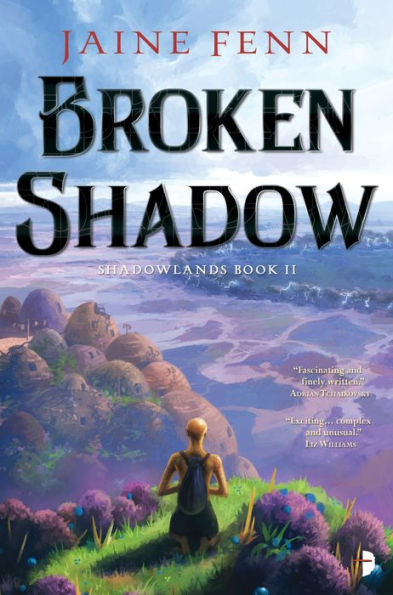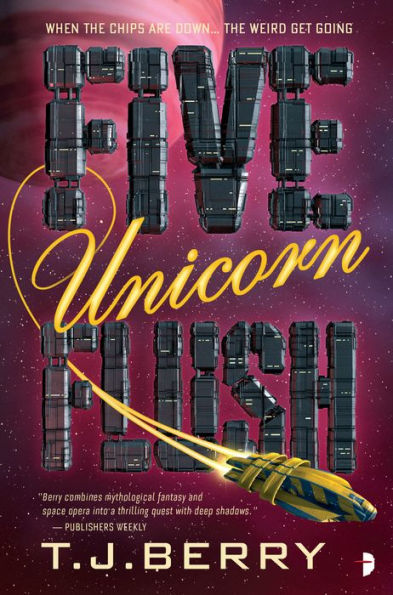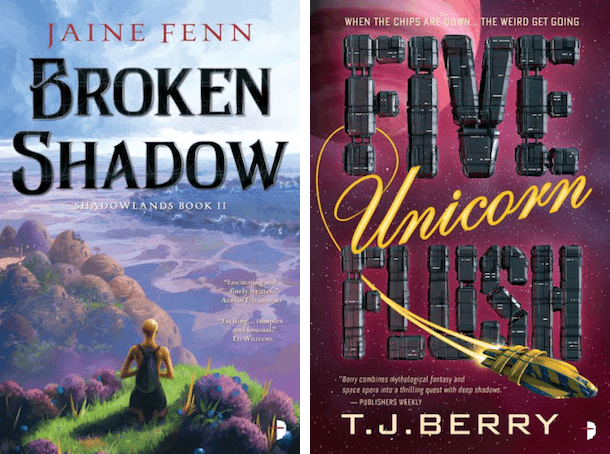This week I’m going to talk about two sequels, one of which I liked a lot better than the other. Part of this is down to my enjoyment of the characters, but part of it, too, is that one of the novels is advertised as the second part of a duology, but it closes on a note that raises as many questions as it answers. The other novel makes no claims to completing its series arc, but it finishes in an emotionally satisfying place, even if it does leave a wide-open door for “further adventures”—and terrible threats.
Jaine Fenn’s Broken Shadow concludes the duology which began in Hidden Suns. (“Concludes” feels to me like a generous word: I do not feel emotionally satisfied at all.) In Broken Shadow, the reader is offered confirmation of what I suspected, reading Hidden Suns. This is not a fantasy universe, but a science fictional one, set on a colonised world whose colonists do not now recall they once came from somewhere else and sought to change the world to their needs, or themselves to the world.
Buy the Book


Broken Shadow
Rhia Harlyn, one of the protagonists of Hidden Suns, now stands accused of heresy for her science. She wants to prove an unorthodox cosmology: The world orbits the sun. At stake is not only her work, but her life. She stands alone: Her brother Etyan, who was transformed, through the experiments of a scientist (the Eparch Sadakh, a man much like Rhia in his curiosity and determination, but with fewer ethics) into someone who can withstand the skylands’ sun, and who should have taken her place as head of their house in their patriarchal society, cannot be relied upon even to show up. Meanwhile, Dej, a skykin exile and Etyan’s lover, discovers that Etyan once raped a woman. Disgusted at him—and pregnant by him—she abandons him and strikes off alone into the skyland, searching for either peace or a place to belong in a world that keeps rejecting her.
But instead of peace, Dej’s journey brings her certain discoveries about the true nature of skykin and shadowkin, and the nature of the world, discoveries that may prove vital to everyone’s survival. For Rhia’s theories are proved right—too late for her to triumph in her heresy trial—by the sudden disappearance of the shadows that protected her homeland. In the wake of disaster, it may be that Eparch Sadakh (struggling to maintain his political survival in the shadowland of Zekt), Dej, and Rhia between them have the keys to the long term survival of the inhabitants of the shadowlands. If they can live long enough, at least. The ending raises at least as many questions as it answers.
Five Unicorn Flush, T.J. Berry’s sequel to the whimsically grim Space Unicorn Blues, appealed far more to me than Broken Shadows. (I compare them this way because I read them back-to-back.) After the totalitarian and genocidal government known as the Reason was cast into difficulties by the sudden removal of the Bala—the races which the Reason depended on for servitude and also to power, with their very flesh, Reason technology—Reasonspace has been in disarray. The ancient and powerful species of beings known as the Pymmie have, meanwhile, transported the Bala to a distant and unknown planet without technology. There, the half-unicorn Gary Cobalt is trying to encourage the Bala people to make the best of their new circumstances—and not return to the Reason in search of their technology.
Buy the Book


Five Unicorn Flush
Captain Jenny Perata doesn’t give a damn for the Reason. She wants to find her wife, a Bala called Kaila. A Maori war veteran who needs to use a wheelchair in gravity environments, Jenny’s entirely in sympathy with the Bala. Now. But her history is one of complicity in genocide and torture, and even though she’s changed, once she finds the Bala—and with them, Kaila, if she’s still alive—she’s going to have to figure out how to make amends. But first, her wife. Who she might find, if she can survive a ship of cannibals and a space battle between Reason forces who are also seeking the Bala, for no very laudable ends.
Berry writes incredibly fun science-fantasy space opera. There’s a trick to pairing humour with darkly serious shit, and Berry has it. Jenny and Gary are complex and fascinating characters, who retain compassion and senses of humour in the most trying of circumstances. Other characters, including Jenny’s ship (an AI), also leap off the page. Fast, tense, and deeply entertaining, Five Unicorn Flush proves that Space Unicorn Blues wasn’t a flash in the pan. I really hope to see more of Berry’s work—and more set in this universe. I enjoyed it a lot.
What are you guys reading lately?
Liz Bourke is a cranky queer person who reads books. She holds a Ph.D in Classics from Trinity College, Dublin. Her first book, Sleeping With Monsters, a collection of reviews and criticism, was published in 2017 by Aqueduct Press. It was a finalist for the 2018 Locus Awards and was nominated for a 2018 Hugo Award in Best Related Work. Find her at her blog, where she’s been known to talk about even more books thanks to her Patreon supporters. Or find her at her Twitter. She supports the work of the Irish Refugee Council, the Transgender Equality Network Ireland, and the Abortion Rights Campaign.










